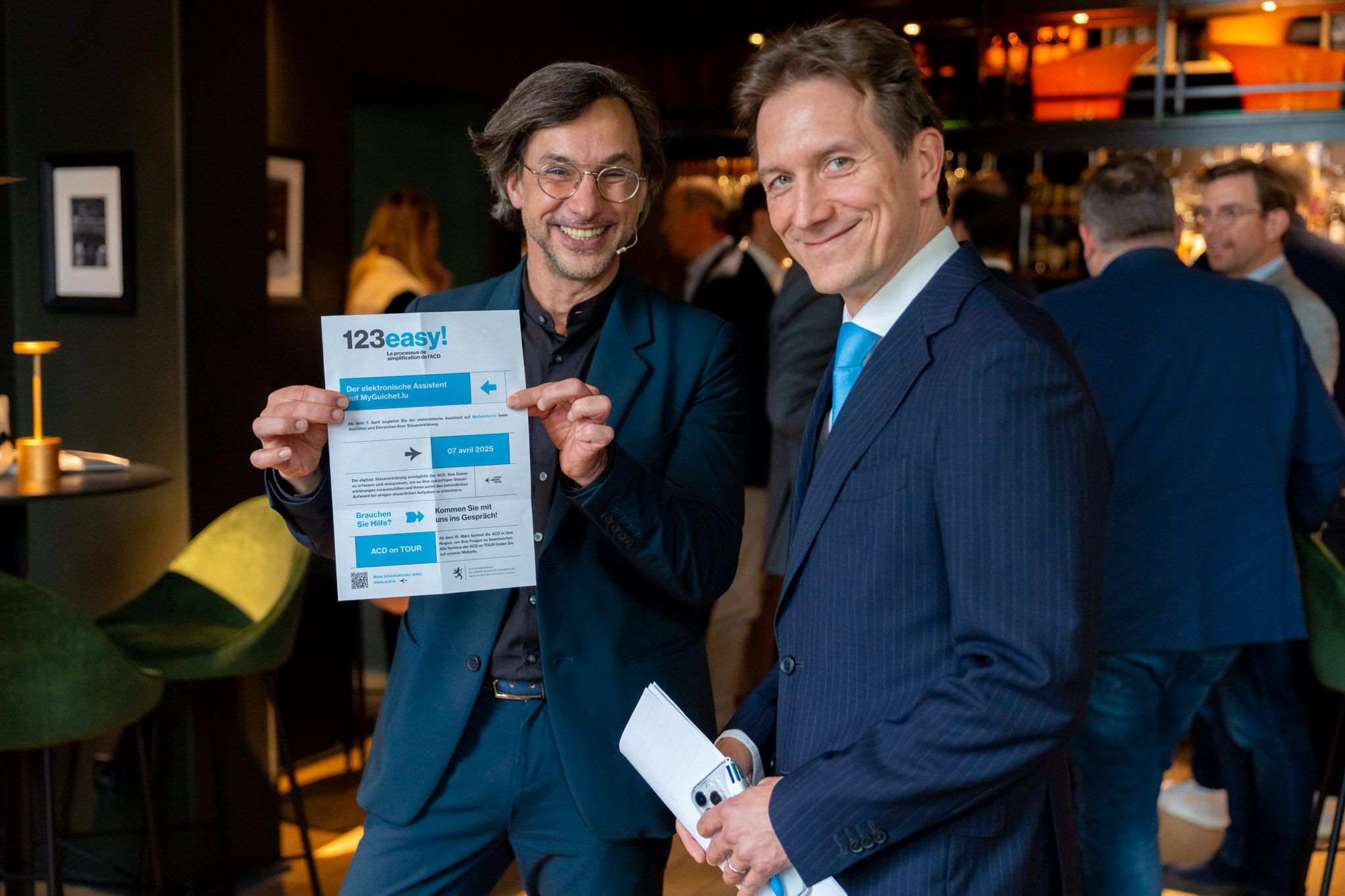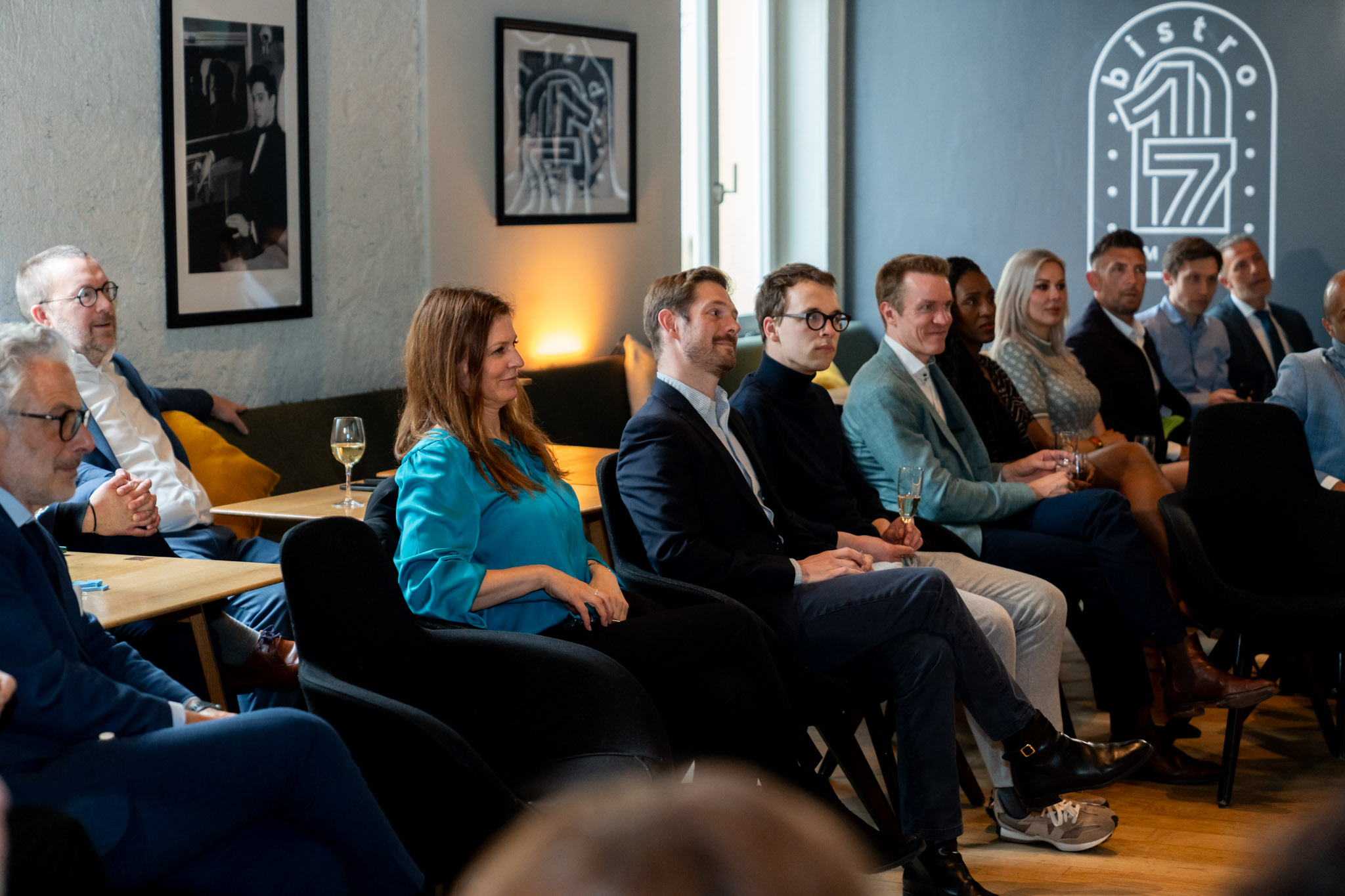Luxembourg’s tax administration is undergoing a digital revolution — but unlike the click-to-file convenience seen in neighbouring France or Belgium, this transformation is unfolding within a context shaped by tradition, banking secrecy, and a distinctly Luxembourgish approach to governance.
Jean-Paul Olinger, Director of Luxembourg’s Direct Tax Administration (ACD), sees his mandate as far more than tax collection. “We’re moving away from a self-centred model—focused solely on the administration itself—and shifting more toward stakeholders and processes,” he explained during a recent panel discussion at B17, in response to a question about the taxpayer experience.
This new vision involves clearer communication and more accessible services for both individuals and businesses. Olinger noted that the administration is considering a redesign of its website and rolling out a “Contact 100” initiative to provide trained support staff for individuals, with plans to expand to businesses. For larger companies, a dedicated point of contact is in the works — someone who can answer questions or escalate issues efficiently.
A Digital Leap Forward — But Not Without Challenges
The cornerstone of the digital push is the MyGuichet.lu portal, Luxembourg’s central e-administration platform. While the portal has long been a hub for various administrative services, tax-specific features are expanding rapidly — though public awareness and adoption remain low.
In 2023, a staggering 77% of individual returns were still submitted on paper, with another 19% uploaded as PDFs — essentially “electronic paper,” as Olinger put it.
The administration’s target is ambitious: 85% digital filing by 2028. The key to accelerating this transition, he says, lies in efficiency and incentives. The latest version of the assistant tool now supports all types of income and even integrates employer-submitted data from the Centre Commun de la Sécurité Sociale (CCSS), eliminating the need for redundant data entry. Details like marital status and number of children are also pre-loaded.
Pre-Filled Declarations: A Balancing Act
Luxembourg’s slower adoption of pre-filled tax returns — standard practice in France and Belgium — is not due to technological constraints but rather policy choices rooted in data privacy.
“Unlike Belgium or France, we maintain banking secrecy,” Olinger explained. “We ask you to report your income, but we don’t have access to your data—not from social security, not from your insurer, nor your bank.”
“As more information becomes available from different administrations, simple declarations will become nearly automatic”
This philosophy is evolving. A future framework will allow taxpayers to opt in to data sharing, enabling pre-filled declarations without compromising privacy. Work is already underway with banks and the insurance industry to develop this functionality. “As more information becomes available from different administrations, simple declarations will become nearly automatic,” he said.
Building from the Back End Forward
While public-facing services often get the spotlight, Olinger emphasised that digitisation involves every layer of the tax ecosystem: front office (user interactions), middle office (risk and compliance analytics), and back office (core IT systems). The latter is especially challenging, given that current systems still run on mainframes from the 1970s.
“These mainframes are stable but resource-intensive and poorly supported nowadays,” he said, noting that a full system migration is being considered — a complex and costly undertaking.

Learning from the Private Sector and Abroad
To support adoption, the ACD is taking cues from the private sector, launching outreach initiatives such as “ACD on Tour”, which brings the digital assistant directly to the public at shopping centres. The campaign’s tagline — “One, Two, Three — Easy” — is, fittingly, in English.
In another nod to user behaviour, Olinger highlighted the impact of staggered deadlines used in France: digital filers were given more time, nudging citizens toward online submission. “We’re learning from good practices abroad,” he said, but emphasised that policy shifts like this remain a matter for parliament.
The Role of Startups and a Forward-Looking Economy
Digitisation isn’t just about convenience — it’s also about aligning the tax system with a changing economy. The government has announced a forthcoming tax credit for investments in startups. While details are still in the works, Olinger framed it as a step toward unlocking private savings for productive use.
“In Europe, the economy is mostly financed through banks. This credit could help channel funds into real economy companies,” he said, adding that Luxembourg’s startup ecosystem is already a magnet for talent and innovation.
Transformation with a Human Touch
For Olinger, the digitalisation of Luxembourg’s tax system is more than an IT upgrade. It’s a long-term transformation balancing continuity and change, privacy and convenience. “If you transform too much without maintaining operations, there’s no way to fund the transformation,” he noted. “It’s something all business leaders understand”.
Read more articles:
Low-Cost Microgravity Solutions
Luxembourg’s Bold Leap Into Autonomous Mobility
Exclusive Clubs And Circles For Networking And Business Growth In Luxembourg













